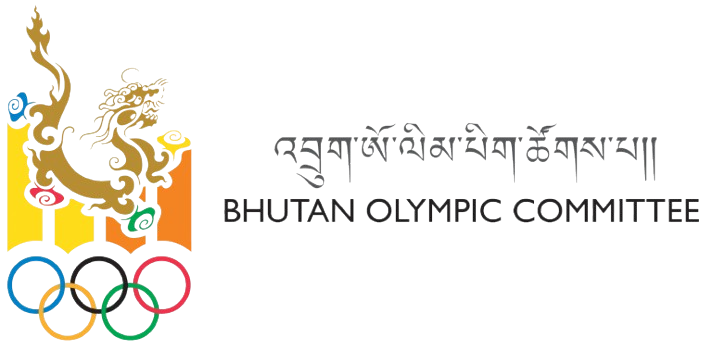International Olympic Committee
The International Olympic Committee is the supreme authority of the Olympic Movement based in Lausanne, Switzerland, created by Pierre de Coubertin on 23 June 1894 with Demetrios Vikelas as its first president. Today its membership consists of the 205 National Olympic Committees.
The original Olympic Games date back to 776 BC. But the modern version was revived in 1894 at the initiative of French educator Pierre de Coubertin and held for the first time in 1896 in Athens, Greece, the birthplace of the original Olympic Games.
On 22 June 1894, the Olympic Games were re-created as an international tournament by Pierre de Coubertin. The baron hoped to foster international communication and peace through the Olympic Games. The IOC is a parent organization intended to localize administration and authority for the Games, as well as to provide a single legal entity which owns copyrights, trademarks, and other intangible properties associated with the Olympic Games. For example, the Olympic logos, the design of the Olympic flag, the motto, creed, and anthem are all owned and administered by the IOC.
The original Olympic Games date back to 776 BC. But the modern version was revived in 1894 at the initiative of French educator Pierre de Coubertin and held for the first time in 1896 in Athens, Greece, the birthplace of the original Olympic Games.
The Olympic Flag, with a solid white background, features five interlinked rings. Three rings (in blue, black and red) sit in the top row with another two (in yellow and green) below. The interlinking rings symbolise the five continents of Europe, Asia, Africa, Australia and America.
The Motto, Citius, Altius, Fortius, was adopted by de Coubertin and translated from Latin, it means “swifter, higher, stronger”.
The Creed “The most important thing in the Olympic Games is not to win but to take part, just as the most important thing in life is not to the triumph but the struggle.”
The Oath “In the name of all competitors, I promise that we shall take part in these Olympic Games, respecting and abiding by the rules which govern them, in the true spirit of sportsmanship, for the glory of sports and the honour of our teams”
The flame, first used at the modern Olympics in Amsterdam in 1928, represents the energy and zeal of top-notch athletes and those who love life.
Olympic Council of Asia
The Olympic Council of Asia (OCA) is the apex sporting body which controls all the sports in Asia. It is one of the five continental associations recognized by the IOC.
The OCA was formed in 1982 and has its permanent headquarters in Kuwait. The main objective of the OCA is to develop sport, culture and education of Asian youth as well as to promote international respect, friendship, goodwill & peace through sports.
The current president is Sheikh Fahad Al-Sabah. The oldest NOC is from Japan and Philippines, recognized by the International Olympic Committee (IOC) in 1911; whereas East Timor is the newest, joining in 2003. The headquarters of OCA are located at Kuwait City.
The Olympic Council of Asia control a variety of Games, these include the Asian Games which are the largest of them all, the different Games haves different concepts or themes. The Asian Games include all traditional and popular sports. However, there are other sports which are still developing and becoming increasingly popular which means that many are not yet incorporated into the main program. Therefore the OCA established ideas to incorporate other non traditional games for example E- sports and extreme sports. In turn this then led to the development of various categories such as Winter Games and Beach Games.
Olympic Solidarity
In order to support a number of NOCs located in countries which had only recently become independent, the IOC decided at the beginning of the 1960s to organise its own methodical, comprehensive assistance programme to help the NOCs and, through them, the development of sport and the Olympic ideals. In 1962, Count Jean de Beaumont created the Committee for International Olympic Aid which merged with a similar body set up by the Permanent General Assembly of the NOCs, to form in 1971, the Committee for Olympic Solidarity.
Olympic Solidarity’s aim is to organise assistance for all the National Olympic Committees (NOCs), particularly those with the greatest needs, so that they can develop their own structures to favour the expansion of sport in their country.
http://www.olympic.org/olympic-solidarity-commission
WADA
WADA, World Anti-Doping Agency was established in 1999 as an international independent agency composed and funded equally by the sport movement and governments of the world. Its key activities include scientific research, education, development of anti-doping capacities, and monitoring of the World Anti Doping Code (Code) – the document harmonizing anti-doping policies in all sports and all countries. WADA is a Swiss private law Foundation. Its seat is in Lausanne, Switzerland, and its headquarters are in Montreal, Canada.
WADA works towards a vision of a world where all athletes compete in a doping-free sporting environment.
RADO
One of the overall objective of WADA’s Program Development activities is to bring together several countries and stakeholders within a geographic area to mobilize and pool resources for anti-doping under the umbrella of an independent Regional Anti-Doping Organization (RADO).
There are currently 15 established RADOs bringing together 122 countries. Please refer to in the Download Centre for a sample of a typical RADO structure.
Every member country is represented on the RADO Board by an individual appointed by the country’s government and National Olympic Committee (NOC). Several key partners, including established National Anti-Doping Organizations, International Federations, continental associations of NOCs, and intergovernmental organizations are assisting the RADOs in developing sustainable anti-doping programs.
All RADOs have trained local experts in the following areas:
- Results management
- Appeals
- Therapeutic Use Exemptions (TUEs)
- Anti-doping education
- Doping Control Officers (DCOs).
